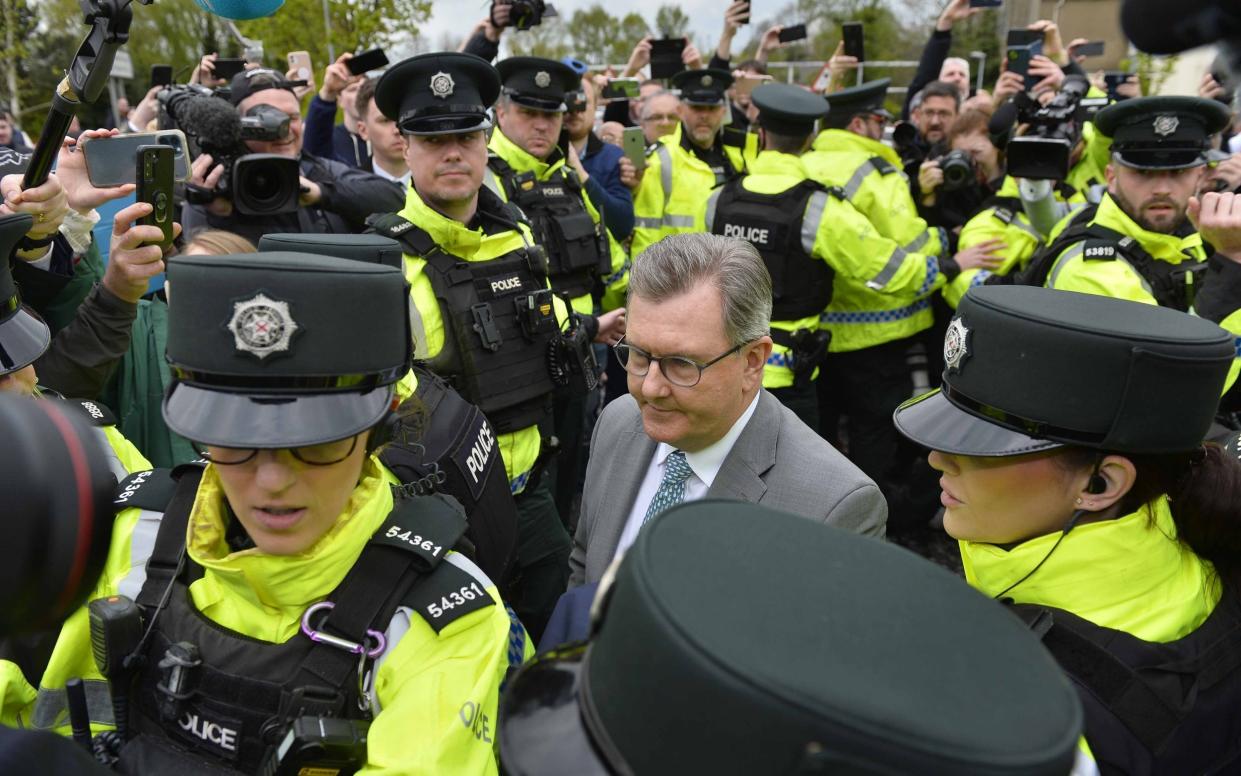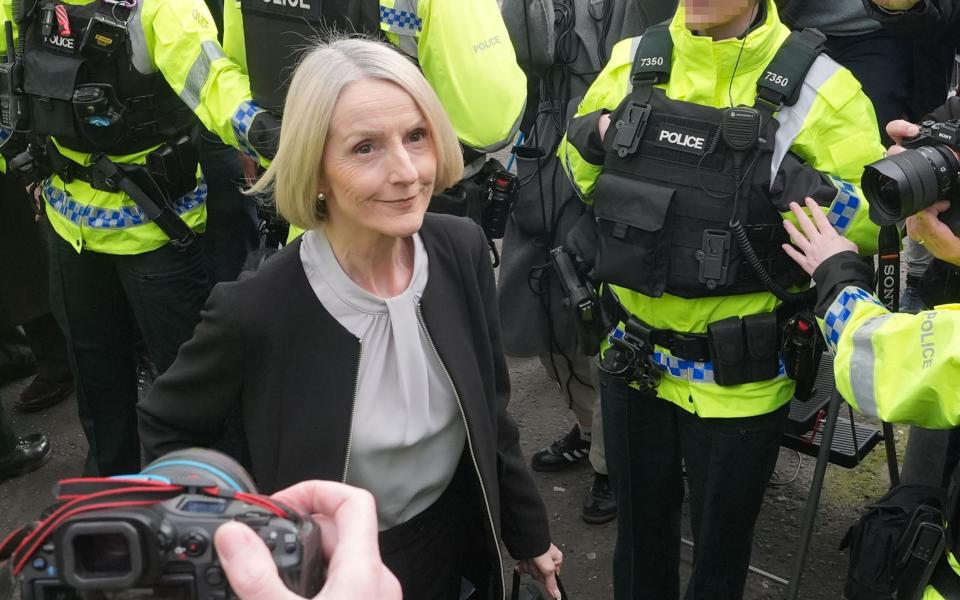Former DUP leader Jeffrey Donaldson will not stand for re-election amid sex offence allegations

Jeffrey Donaldson will not seek re-election as he faces charges for historical sex offences, his solicitor has said.
The former DUP leader has been accused of 11 offences including rape and gross indecency with a child.
The veteran unionist MP appeared in court in Newry, Northern Ireland, last month after arriving separately to his wife, Lady Donaldson, who is charged with aiding and abetting the rape and an indecent assault.
At the latest hearing, magistrates heard that a preliminary inquiry to establish whether there is sufficient evidence to send Sir Jeffrey to trial over historical sex offences will take place on July 3.

The date for the committal proceedings was fixed when the case against Sir Jeffrey and his wife was briefly mentioned during the hearing on Wednesday.
The pair were not required to attend court but following the short, three minute hearing, Sir Jeffrey’s solicitor John McBurney told RTE News he would not be standing for re-election.
“I can indicate that it is not Jeffrey’s intention of course to stand for re-election,” he said.
“He will be concentrating on the case and defending the charges. He is continuing as the MP at the present time. There’s various matters to be dealt [with], constituency matters and administrative matters to do with his offices and so forth.”
Sir Jeffrey was forced to quit as leader of his party after being arrested at his home in Co Down on March 28 and charged with the historical offences later that day.
He is charged with one count of rape, one count of gross indecency towards a child and nine counts of indecent assault during a period spanning more than 20 years.
The rape charge states that on an unknown date between January 1985 and January 1991 he “had unlawful sexual intercourse” with the alleged victim who “did not consent to it” or Sir Jeffrey was “being reckless as to whether the said person consented”.
He is charged with four counts of indecent assault against the same victim that allegedly took place between January 1985 and December 1991.
It is also alleged Sir Jeffrey abused a second victim and committed an act of gross indecency towards a child between January 2005 and December 2006.
He is charged with five indecent assaults against the same victim between January 1998 and January 2006.
Lady Donaldson, 58, is facing four charges spanning almost 10 years relating to the same alleged victims.
She is accused of aiding and abetting the rape and one indecent assault allegedly committed by her husband.
Update on progress
During today’s hearing, Fiona O’Kane, a barrister for the Northern Ireland Public Prosecution Service, gave an update on progress in the case.
“The case is progressing quite expeditiously,” she told District Judge Eamonn King. “The position this morning is that we would hope to be able to have the PE [preliminary enquiry] itself on July 3.”
She said the review hearing on June 12 would provide an opportunity to check that progress towards the preliminary inquiry date was still on track.
Ms O’Kane said papers on the case were being prepared.
A lawyer representing Lady Donaldson questioned whether the preliminary inquiry could be brought forward to the June 12 hearing date. When Ms O’Kane indicated that would not be possible, he said he was content not to pursue that request.
A lawyer representing Sir Jeffrey asked the judge to agree to what he described as an “uncontentious” amendment to his client’s bail conditions.
He explained that a condition on the bail granted by police when Sir Jeffrey was arrested was that he was to have no unsupervised contact with anyone under the age of 16.
The lawyer said in the process of converting the bail conditions, the term “unsupervised” was omitted.
The judge agreed for the word unsupervised to be added to the condition in the court bail.

